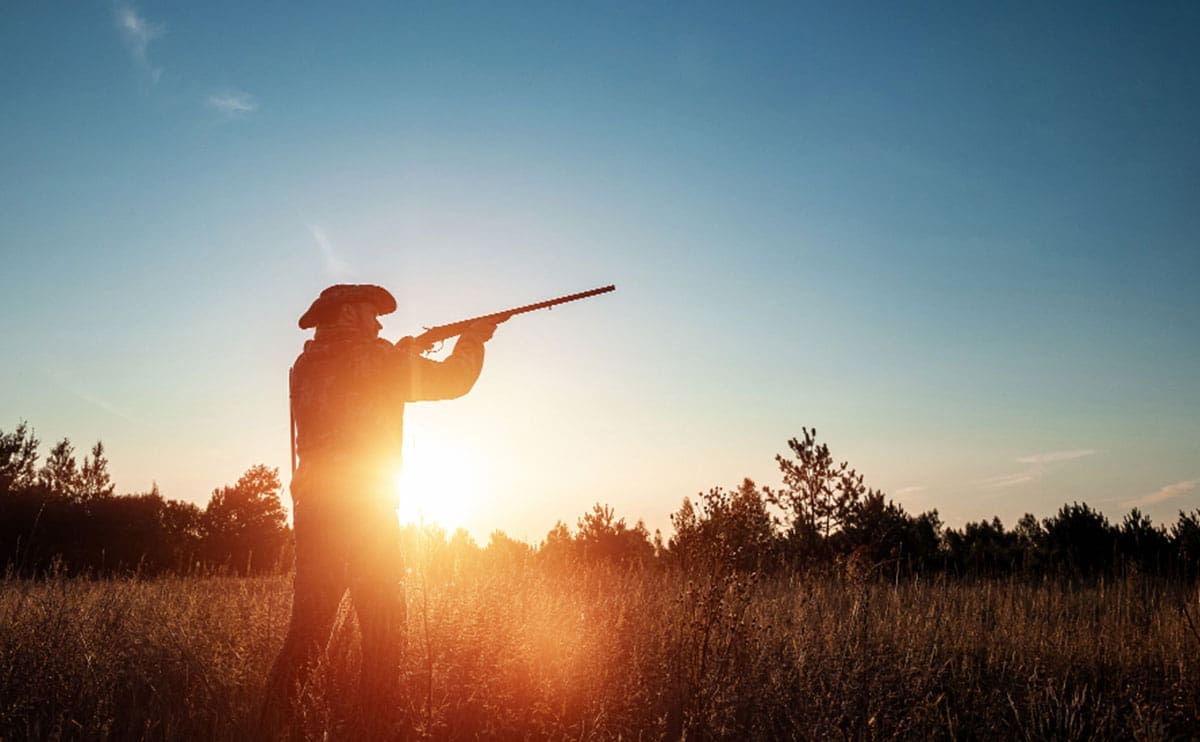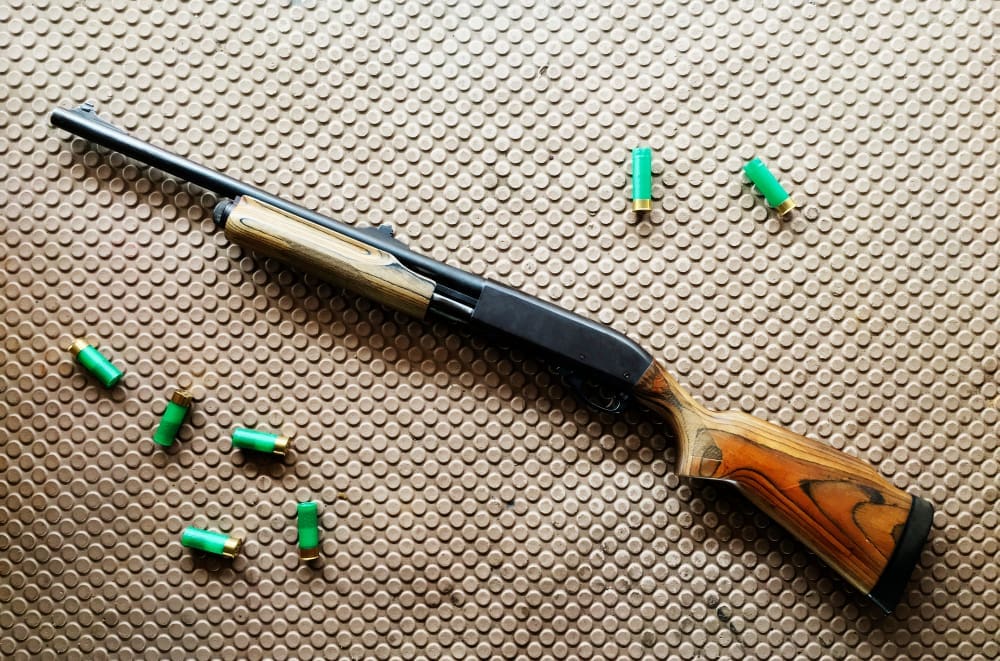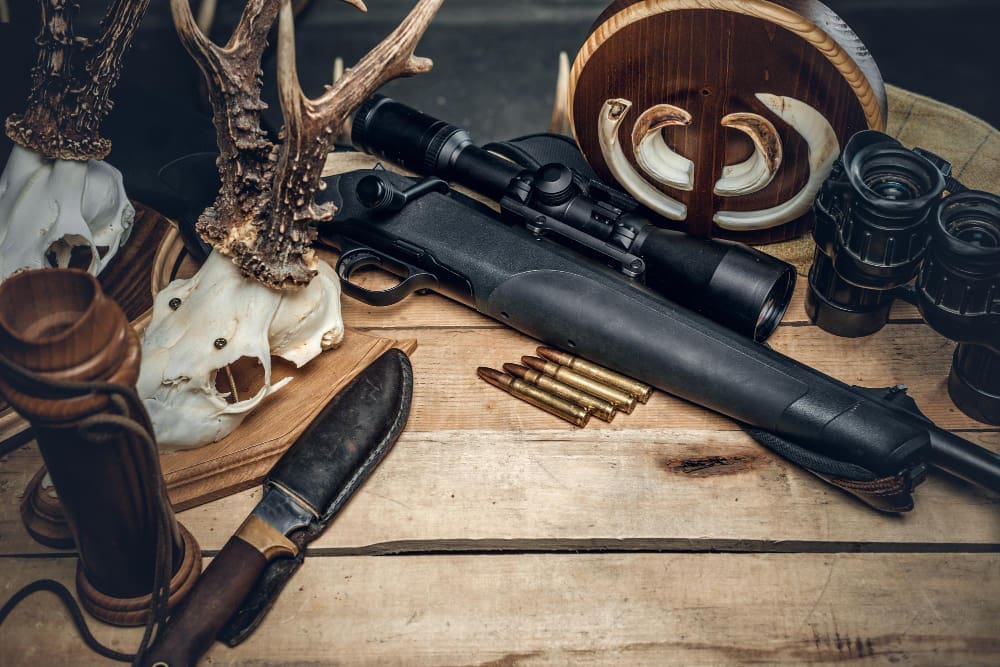What Legal Requirements Must You Consider When Selecting a Firearm for Hunting?(7 Steps)

Hunting is an exhilarating outdoor activity, but it comes with significant responsibility, especially when it comes to the legalities surrounding firearm use. Whether you’re a seasoned hunter or a beginner, selecting the right firearm for your hunt is not just about the weapon’s caliber, weight, or brand; it also involves understanding the legal requirements and regulations that govern firearm use in your jurisdiction. Failing to comply with these laws can lead to hefty fines, loss of hunting privileges, or even jail time. This guide will break down the essential legal factors you need to consider when selecting a firearm for hunting, ensuring you’re fully prepared and compliant with the law.
Inhaltsübersicht
1. Know Your State and Local Laws
Licensing and Registration
Before selecting a firearm for hunting, it is essential to familiarize yourself with your state’s specific firearm laws. Each state, and sometimes even specific counties or municipalities, can have different requirements related to firearm registration, licensing, and possession.
- Licensing: Most states require hunters to obtain a hunting license, and in some cases, a specific permit for firearm use in hunting. This includes restrictions on the type of firearms allowed in different hunting zones, such as shotgun-only areas for bird hunting.
- Firearm Registration: Depending on the state, certain firearms may need to be registered with local law enforcement. Always verify the registration process and whether your firearm requires this step.
Age Requirements
Laws also regulate the minimum age at which a person can legally purchase or use a firearm for hunting. Typically, hunters must be at least 18 years old, but some states may have additional requirements for younger hunters, such as adult supervision or the completion of a firearm safety course.
2. Firearm Type Restrictions
Different types of hunting require specific kinds of firearms. Many states have laws governing which firearms can be used for specific game, as well as restrictions on the type of ammunition that can be used. Below are some critical considerations:
Shotguns vs. Rifles
- Shotguns: Shotguns are often required for bird hunting, as they fire pellets that spread across a wide area, making them ideal for hitting fast-moving targets like ducks or pheasants.

- Rifles: Rifles are typically used for hunting larger game, such as deer or elk. Many states have rules about what calibers are appropriate for certain types of hunting.

- Handguns: Some states allow the use of handguns for hunting, but they often come with additional legal restrictions. You may need a special permit to carry and use a handgun for hunting.
Ammunition Restrictions
States also regulate the types of ammunition that can be used, particularly in relation to non-lead ammunition. Lead ammunition is banned in some areas to protect wildlife, particularly birds. For example, California has enacted laws requiring non-lead ammunition for all hunting, including big-game hunting.
3. Hunting Seasons and Firearm Use
The hunting season and firearm regulations often overlap, as different firearms may be allowed for specific seasons. These regulations include the type of firearm, the number of rounds, and restrictions on silencers or modifications.
Seasonal Restrictions
Different species may have designated hunting seasons, during which only certain firearms or weapons are allowed. Always consult your state’s hunting regulations to ensure that your firearm is compliant with the rules for that particular season. For example, some seasons may prohibit rifles, requiring hunters to use shotguns or muzzleloaders instead.
Firearm Modifications
In some states, modifying a firearm, such as adding a suppressor or altering the barrel length, may be illegal unless a specific permit is obtained. Make sure that your firearm complies with both local and federal laws regarding modifications.
4. Federal Firearm Laws
In addition to state-specific laws, federal laws also govern the purchase, ownership, and use of firearms. Below are key federal laws to keep in mind:
National Firearms Act (NFA)
Under the National Firearms Act, certain types of firearms—such as fully automatic weapons, short-barreled rifles, and shotguns—are heavily regulated. If you’re considering a specialized firearm for hunting, make sure to research whether it falls under the NFA and whether additional paperwork or background checks are required for purchase.
Gun Ownership Restrictions
Federal law prohibits the possession of firearms for certain individuals, including convicted felons, individuals with restraining orders, or those deemed mentally unfit to own a firearm. If you’re planning on purchasing a firearm for hunting, you will undergo a background check to verify your eligibility.
Transport and Travel Laws
If you plan to hunt across state lines, be aware that each state may have different laws regarding the transportation of firearms. While the Firearm Owners Protection Act (FOPA) protects the interstate transport of firearms, you must follow specific guidelines, such as keeping the firearm unloaded and locked while traveling.
5. Firearm Safety and Education Requirements
Many states require hunters to complete a certified hunter safety course before they can legally hunt. These courses typically cover firearm safety, safe handling, and the legal requirements for hunting with firearms. Completing this course may not only help you avoid accidents but is also often a legal prerequisite for obtaining a hunting license in many states.
Hunter Education Courses
Hunter education courses often cover various topics, including:
- Basic firearm safety
- Proper firearm handling and storage
- Ethical hunting practices
- Legal considerations for hunting with firearms
These courses are essential for new hunters and may be required for those under a certain age.
6. Concealed Carry and Open Carry Laws
If you’re carrying a firearm while hunting, it’s crucial to understand whether the state allows concealed carry or open carry of firearms. Many hunting areas, especially in national parks or federal lands, have specific restrictions on carrying firearms for personal protection during hunting seasons.
Concealed Carry Permits
Some states allow hunters to carry a concealed firearm while hunting, provided they have the proper concealed carry permit. If you plan on carrying a concealed weapon, ensure that you meet the state’s legal requirements, which may include background checks and additional training.
Open Carry Laws
Open carry laws vary significantly by state, with some states allowing the open carry of firearms during hunting, while others may prohibit it. Be sure to check if your state has open carry restrictions, particularly in areas that may have a significant number of visitors or tourists.
7. Wildlife and Conservation Laws
When selecting a firearm for hunting, it’s also essential to be aware of wildlife conservation laws that govern hunting practices. Some species may be protected by law, and hunting them without proper permits can lead to severe legal consequences.
Endangered Species Laws
Ensure that the firearm you’re using complies with hunting regulations designed to protect endangered or threatened species. Federal laws such as the Endangered Species Act (ESA) provide strict guidelines about hunting certain animals. Using a firearm to hunt an endangered species, even accidentally, can result in severe fines or criminal charges.
8. Check for Local Restrictions
Finally, always check for local ordinances that may impose restrictions on firearm use in certain areas. Some counties or municipalities ban the use of firearms in residential or urban areas, while others may have restrictions on firearm discharge, noise levels, or specific hunting methods.
Schlussfolgerung
Selecting the right firearm for hunting is about more than just personal preference or effectiveness; it requires careful consideration of the legal landscape. By understanding the laws and regulations in your state, region, and country, you ensure that your hunting experience remains both legal and enjoyable. Always consult local regulations, complete necessary training, and make sure your firearm is in full compliance with all legal requirements. Whether you’re hunting big game in the mountains or small game in the woods, staying informed about your legal obligations will ensure a smooth and responsible hunting experience.
Stay safe, follow the laws, and happy hunting!
